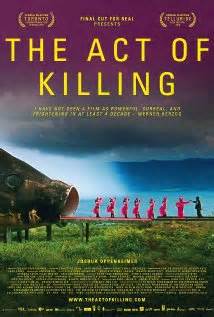At some point a few years back, independent studios experienced a major run on holocaust documentaries. The angles were almost always left-of-center – stock footage from the Warsaw Ghetto, previously undisclosed testimony from the Nuremberg trials, the plight of Polish gypsies during Nazi occupation. Despite the wide range, every one of these documentaries was inconceivably vile … perhaps necessarily so. If you were a full-time movie critic during that period – or even a freelance reviewer, for that matter – rarely would a month go by without one one of these films appearing on your docket.
I mean, consider for a moment the myriad reels of actual footage; of human beatings and gas showers and bloated boxcars barreling toward Auschwitz; of wanton cruelty and injustice, of bodies lying strewn about, set for loading onto wheelbarrows … set for dumping into landfills. A few months in, the nonstop rash of screenings began to feel severely draining.
In fact, draining might be the ideal descriptor for Joshua Oppenheimer’s The Act of Killing – a two-hour fit of brilliance during which real-life executioners from Indonesia are tasked with producing a low-budget motion picture focused on their own atrocities. Said atrocities go far beyond the average mass murder, the sum total of them bordering upon genocide, claiming an approximated 1,000,000 victims (the overwhelming majority of whom were accused of being Communists) throughout the mid-to-late 60s.
At the center of it all was Anwar Congo, an executioner-cum-patriot who speaks of his war crimes as if they were legend. Congo likens himself to a necessary evil, a misunderstood gangster whose intentions served the greater good.
The Act of Killing‘s approach is a major gamble, to be sure. But it pays off in spades, specifically because the aging Indonesians still perceive themselves as freedom fighters;unrepentant white hats slashing through a sea of red. Meanwhile, the majority of the moviegoing public will heretofore recognize them as motion picture’s greatest foil; a low-rent cluster of ne’er-do-wells perennially wading dick-deep in the muck.
Mainstream critics are going apeshit over Oppenheimer’s documentary, which is to be expected, given the project was executive-produced by both Werner Herzog and Errol Morris. And yet, there exists a very obvious dichotomy, what with the majority of major media outlets having spent the past few days denouncing Rolling Stone‘s decision to place Boston Bombing suspect Dzhokhar Tsarnaev on an upcoming cover. Seems a bit hypocritical, no? Praising the release of an independent film about an executioner while condemning the portrayal of a domestic terrorist as rock star? In essence, what critics are really submitting to here is the notion that comedy equals tragedy plus time.
But I digress.
Truth be told, the digital stream I was using to watch The Act of Killing froze up about an hour and 10 minutes into the film. Try as I might, I simply could not get it to proceed beyond that point. This may very well have been the result of my constantly stopping and starting the film in order to jot down notes or revisit a specific segment. A lot of these digital streams are hard-coded to avoid any risk of piracy, and I may very well have sprung some type of firewall. The point being, I never really did get to see how Anwar Congo’s self-made Commie picture turned out. Then again, I didn’t really need to. Historically speaking, I’m pretty sure I know exactly how that godforsaken bloodbath turned out way back in the mid-60s. I harbor very little interest in watching it turn out that way again.
(The Act of Killing opens this Friday, July 19th at Landmark Cinemas in New York with plans for a national rollout to follow.)

